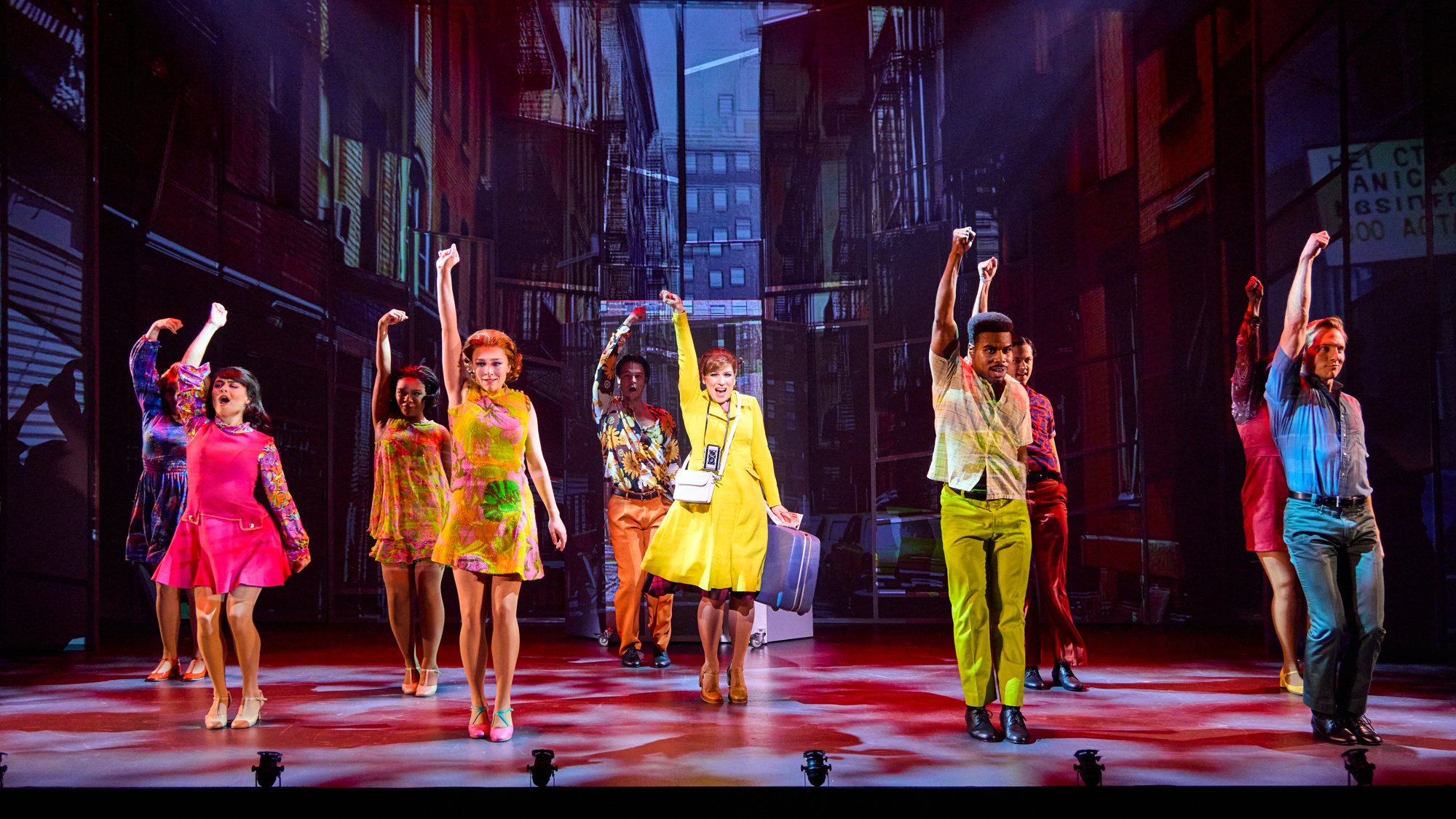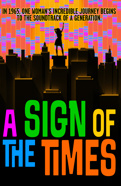Chilina Kennedy Makes Joy the Medium and the Message in A Sign of the Times
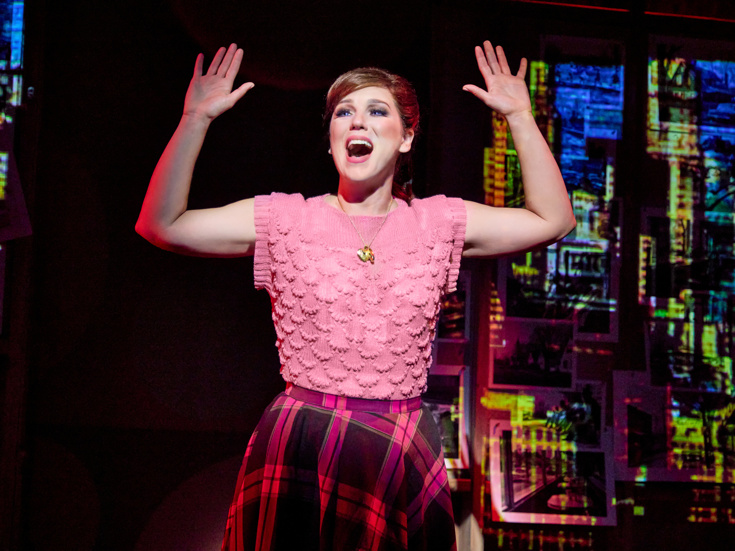
(Photo: Jeremy Daniel)
Chilina Kennedy has cultivated a kinship with the 1960s. It could be how the melodies, which she compares to “putting on a warm blanket,” suit her voice. Or, it could be the decade’s inherent cry for liberation—an ethos of empowerment that buzzes underneath Kennedy’s kindly exterior. As confidently as she labels herself “a big feminist,” she just as assuredly declares, “I’m so Canadian.”
While there was no overt political messaging in Beautiful: The Carole King Musical—which she performed over 1,200 times on Broadway—its title singer-songwriter’s passage from wife, mother and collaborator to self-determining solo artist was, to namecheck Kennedy’s latest stage project, A Sign of the Times. Themes of political equality shift to the front foot of this new musical, directed by Gabriel Barre at New World Stages and set in 1965 New York City at the intersection of the decade’s various progressive social movements. The other foot, meanwhile, dances to ‘60s bops by Petula Clark and other hit-makers of the day.
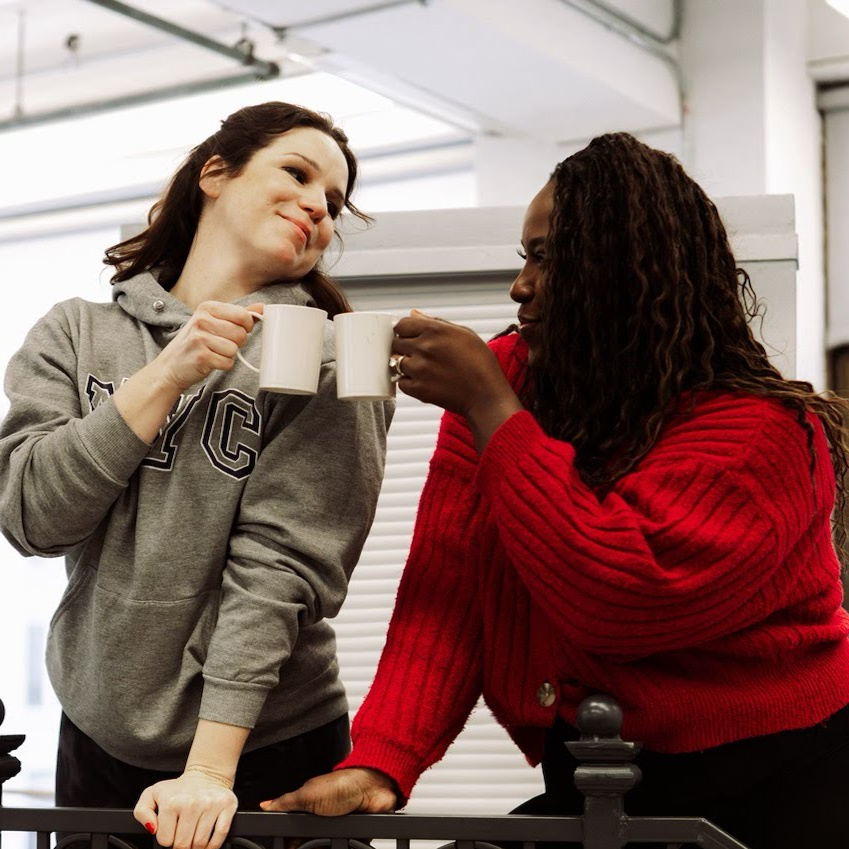
“We’re not fluffy but we’re not super depressing,” Kennedy states plainly during a break from rehearsal. “You will leave feeling hopeful—and feeling like that was great music.” Kennedy has kept A Sign of the Times in her orbit for going on eight years. And yes, that math does mean 2016 was a particularly groovy one: “I couldn’t do the very first production at Goodspeed because I couldn’t get out of Beautiful.” She did, however, go on to do another production in 2018 at Delaware Theatre Company alongside her off-Broadway co-stars Crystal Lucas-Perry and Ryan Silverman, who have also stuck with this musical since its earliest stages.
When asked what it is about A Sign of the Times that has held her attention, she notes first, “It was the feminist message of the show that I found really inspiring.” The thought that immediately follows is, “...and I love the music.” She names Dusty Springfield’s “I Only Wanna Be With You,” a tune she gets to belt out in the show, as one of her favorite songs. In the next breath, she proudly relates how the show “just keeps getting deeper and deeper and deeper,” regarding the dimensions of its political epicenter, boiling over with Civil Rights protests and second-wave feminism. (Lindsey Hope Pearlman penned the book for this iteration.)
"It’s about celebrating what it is to be a woman and being powerful and taking up space and doing it joyfully."
–Chilina Kennedy
Kennedy’s character, Cindy, is a small-town girl from Centerville, Ohio. At the start of the show, she foregoes her set path of marriage and kids and hops a bus to New York City in search of broader horizons. Once there, she embarks on a career as a photographer and makes a best friend of Tanya (Lucas-Perry), the Laverne to her Shirley and a partner in challenging white, patriarchal society.
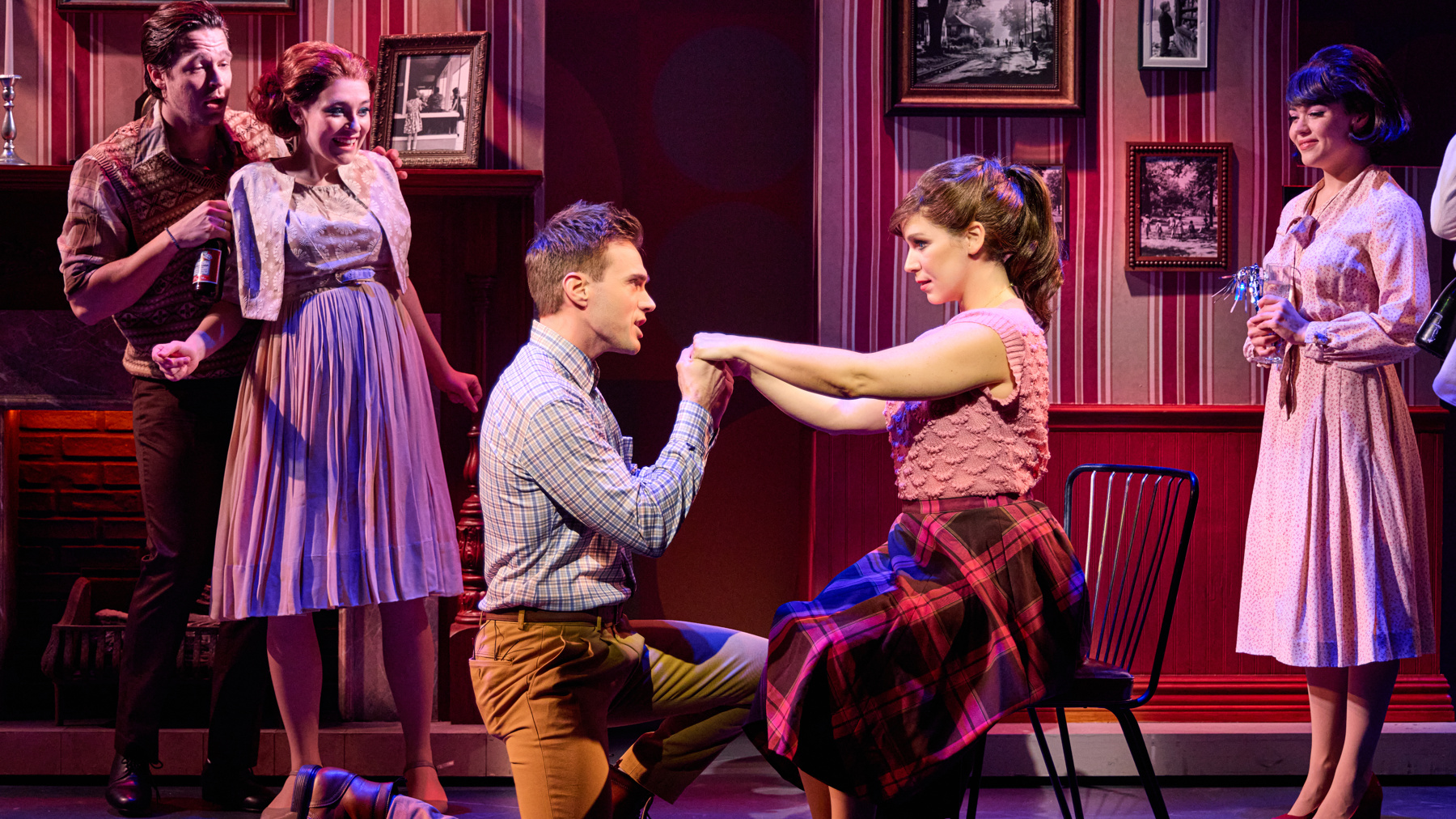
The entertaining and the edifying, the personal and the political, the appealing and the appalling—one of Kennedy’s most common refrains about the show is its happy medium between all these qualities. But inside the rehearsal room, it’s clear that she’s not just referring to how they all stand comfortably side by side, but also how they bolster one another.
At a particularly climactic moment—no spoilers here—Kennedy leads a group of women in a rendition of Lesley Gore’s “You Don’t Own Me.” JoAnn M. Hunter, who choreographs, pulls aside the ensemble for a movement note: “It’s not a f*ck you,” she tells them all. Puffing out her chest, she says, “It’s—yes.” Kennedy translates: “It’s not about, ‘you can’t’ and ‘we can.’ Or ‘you get outta here so we can take over.’ It’s about celebrating what it is to be a woman and being powerful and taking up space and doing it joyfully.” Joy is the protest, not the byproduct.
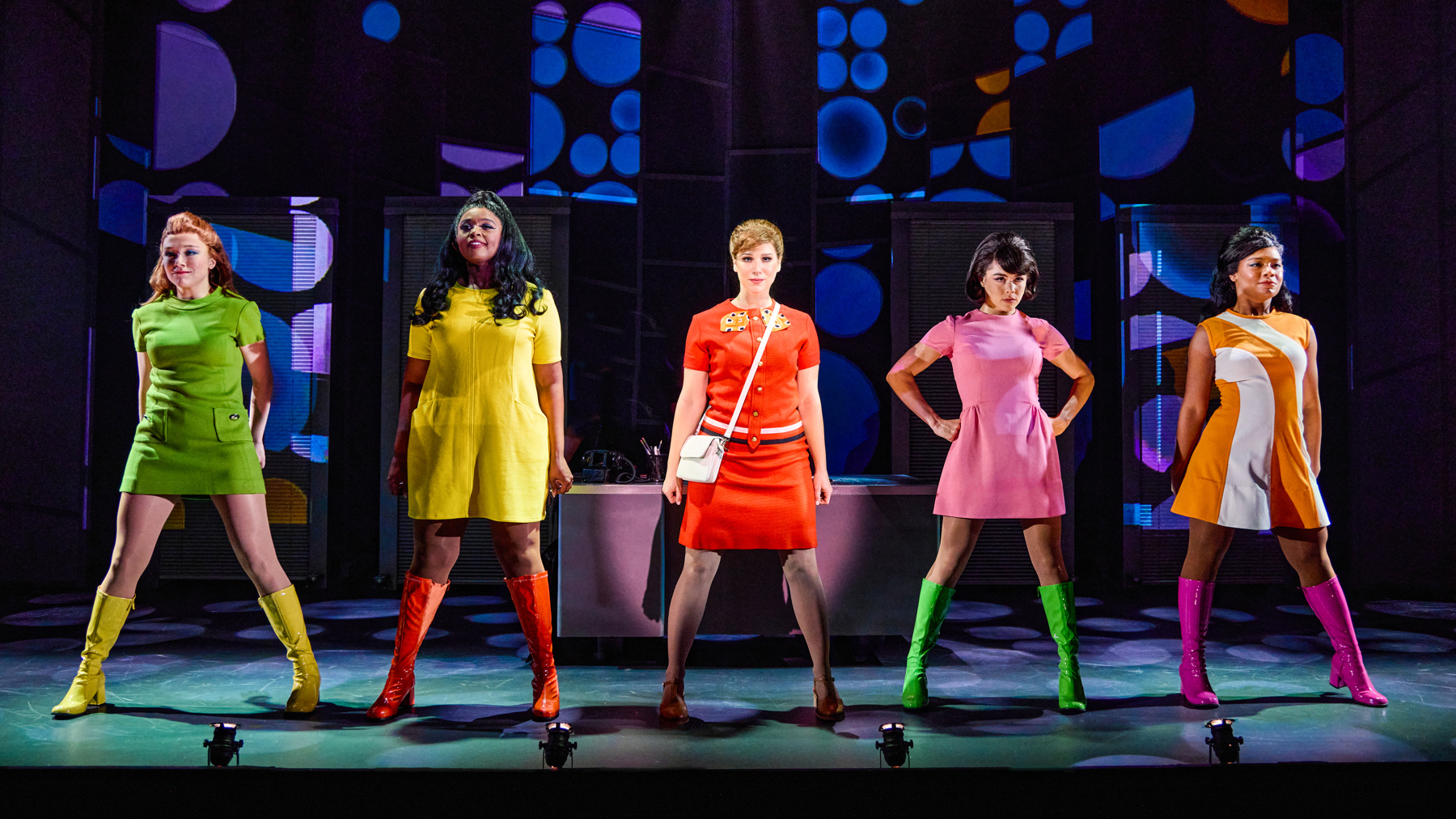
“Taking up space and doing it joyfully” could equally be Kennedy’s personal tagline—though, as she admits, not always. “I used to take myself way too seriously. I could not find the joy in it,” she reflects with a cringe. “And then suddenly I had this lightbulb moment: What’s the point if I’m not having fun?” You don’t have to be inside a Chilina Kennedy rehearsal room long to see how enthusiasm and confidence are two sides of the same coin. One moment she giddily sidebars with Lucas-Perry to come up with an appropriately quirky way the two pals might answer a phone in their shared apartment. The next, she’s asking Hunter for additional dance steps in a moment she knows needs more purposeful action.
"I had this lightbulb moment: What’s the point if I’m not having fun?"
–Chilina Kennedy
Her confidence in the room has a natural ease. But that too, she explains, was a journey. “As a young dancer I was a bit shy and kept to myself,” she recalls. “I think I got much more confidence when I started studying classical theater and I found my voice in a much deeper way” (she studied at Birmingham Conservatory for Classical Theatre in Stratford, Ontario). That training ended up priming her for a broad spectrum of characters, from a disco-era publicist named Binky in Stephen Trask and Peter Yanowitz’s fever dream of a musical This Ain’t No Disco (“the best entrance I’ve ever had”), to Israeli café owner Dina in the national tour of The Band’s Visit (“powerful beyond anything I could imagine”).
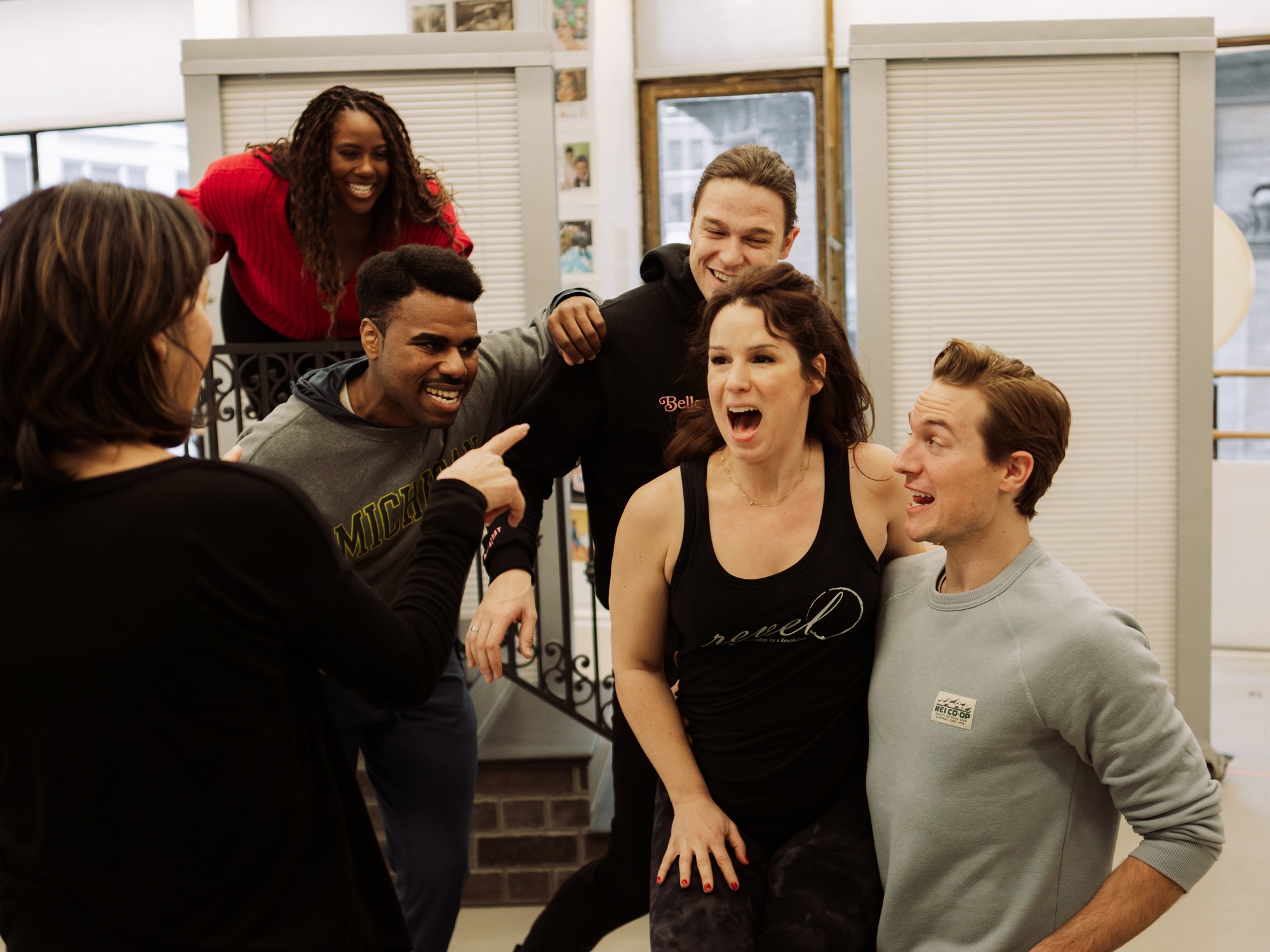
She also credits the United States with shaking off some of her Canadian proclivities for apologizing. “When I was first on tour with Mamma Mia!,” she says, looking back over 20 years to her first job in the U.S., “we were going out to see a movie in a very busy American city. I was so busy saying ‘sorry, excuse me, excuse me’—All my friends had popcorn and drinks and were waiting for me by the time I got through the doors.” She still remembers all her castmates shouting at her: “Chilina! Stop apologizing! Take your space!”
It's a scene not unlike Cindy’s touchdown in New York City. “That’s the whole opening number—her being bombarded with this stuff,” says Kennedy. “But it’s what she’s been craving this whole time. So I think she welcomes it.”
What comes next for Cindy might sound familiar. “Then she meets Tanya and they embark on this whole big journey together of who they’re going to become amid the sea of patriarchal structures.” Don’t worry, the music will help you remember the piece is set in 1965—though if it reverberates with meaning in contemporary ears, all the better.
“You can learn a lesson in a great and joyful way. In a lighter way than I was doing,” Kennedy remarks, looking back on the version of herself who hadn't yet discovered how power, purpose and fun are symbiotically entwined. Now, as she claims her space with generosity—but without apology—the actress can speak for both herself and her future-gazing heroine when she says, “I worked my whole life for this. So why not celebrate it?”
